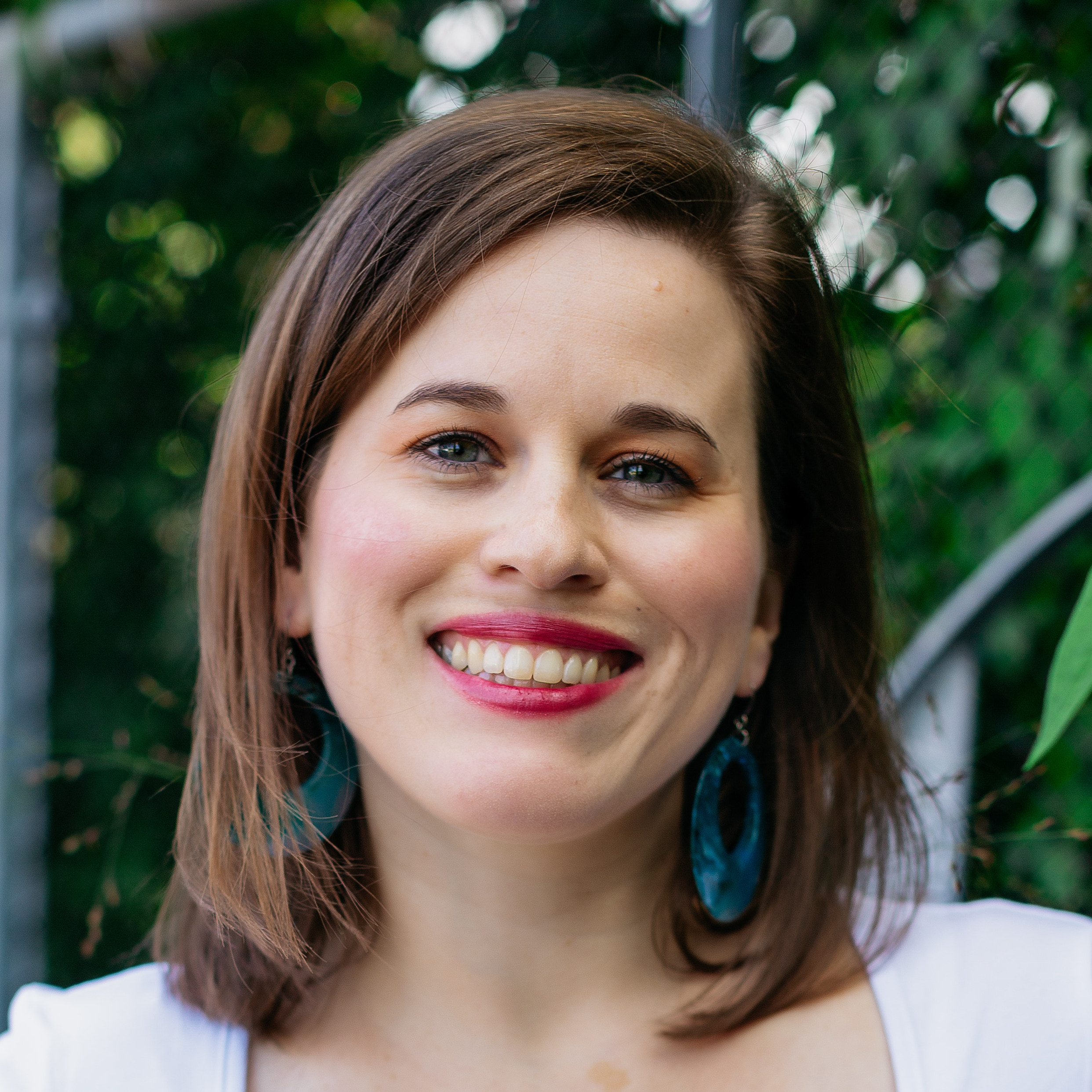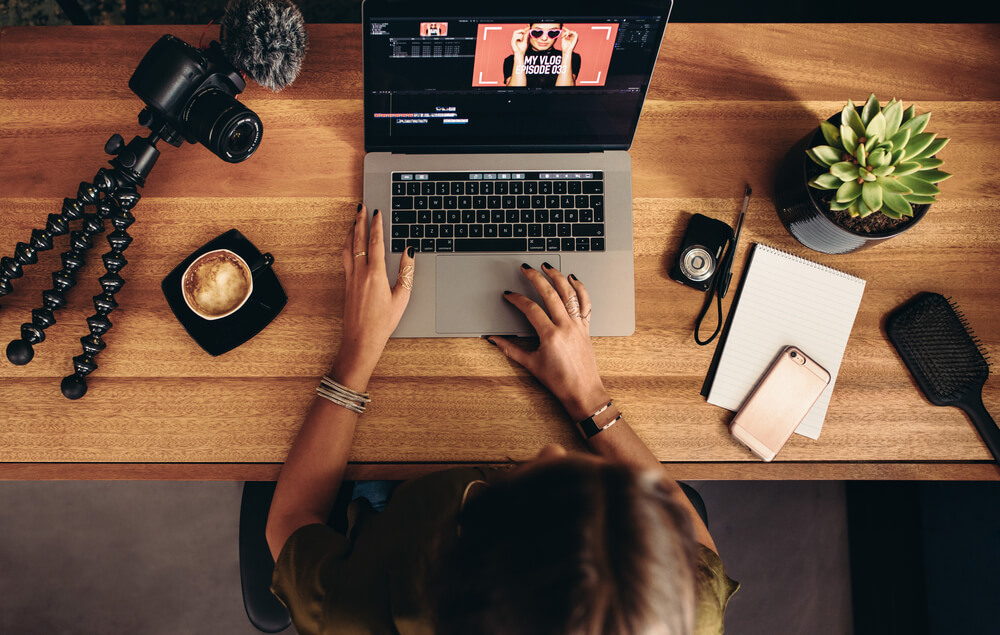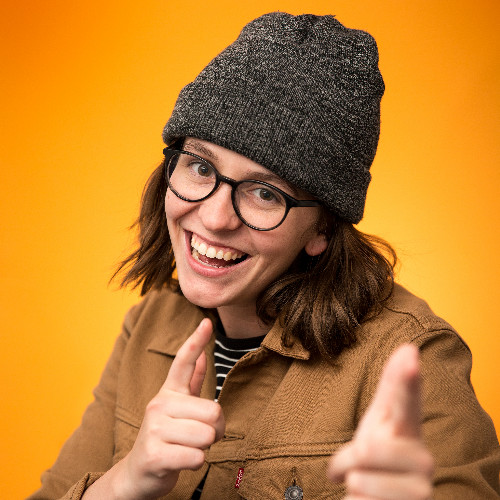How They Made It is an interview series that focuses on indie creators, exploring how they got their start and how their shows and practices have evolved since then. We hope you find inspiration in them for your own creative projects.
If there’s an indie creator who’s hit it big that you think we should feature, send an email to ashley@descript.com.
You Must Remember This is the gold standard of (mostly) independent podcasting. Journalist and film critic Karina Longworth started the show in her house nearly a decade ago, and even though she’s since partnered with advertising networks in order to get monetized, she’s always retained total ownership and control over the show. That’s allowed her to work on her own schedule, dropping self-contained seasons when they’re ready and focusing on topics as disparate as the Hollywood blacklist and how portrayals of on-screen sex and sexuality evolved throughout the 80’s and 90’s.
The show is a great argument for making what you want, how you want to make it, and letting people come to you. So we spoke to Karina about how she got started, when she moved out of her basement (surprisingly recently), and whether she’d ever sell her much-beloved show.

How did you get started podcasting? What did you know about the medium at the time?
I started in the spring of 2014. It was before Serial, which I know a lot of people think of as the ground zero of podcasting, but I already listened to a number of podcasts, such as Marc Maron’s and the Slate podcasts. I was stalled professionally and wanted to transition from writing about new movies, to writing about old movies. I felt I needed to make a showcase for the kind of work that I really wanted to do. I thought it could maybe be a calling card that could get me a job doing the kind of research that I wanted to do. So I wrote a script for a first episode, borrowed some audio equipment and taught myself how to use it and how to edit in GarageBand.
What was your first technical set up like? How has that changed over time?
When I began to podcast, I borrowed a RODE microphone and Avid MBOX [digital audio interface], which I attached to my laptop. Somewhere down the line I bought my own versions of those things, and an iMac to record and edit on. For the first 3+ years of the show, I recorded in my home office, eventually moving into the tiny bathroom in the home office during that period.
Then in late 2017 I moved to a new house, and I then started recording in a small closet there. In 2020 when I couldn’t leave the house I used some of the extra time that bought me to line that closet with acoustic foam and attach a mic arm to the wall. Then two years later, in the summer of 2022, I finally moved into an office space outside of the home, where I built a dedicated studio.
When and how did you start monetizing YMRT? Are you with an ad network at this point?
YMRT joined its first ad network after 10 episodes, in the fall of 2014. The show really started making money a year later when I switched to Panoply. Revenue grew steadily over the three years I was with Panoply, and I was shocked and saddened when they got out of the business. Then I spent a year with Stitcher, and then joined Cadence13, which still distributes the show and sells ads for a share of the revenue. I own YMRT wholly and have also made money optioning seasons for television adaptations.

How did your show start to find its audience? Is there anything you did that you'd particularly recommend to other fledgling podcasters?
It’s hard to make recommendations because my show started to find an audience really by accident. After the third episode, when it was totally independent and not part of any podcast network, when I was still editing it and doing everything else myself, it got a write up in Entertainment Weekly. That was still a big print magazine then, and it led to more press, and steady audience growth. I’m sure having famous guest stars has helped, but I really haven’t done that much the last two years, and the audience has held steady. I wouldn’t know what to suggest today, as I began to find my audience in 2014. It’s obviously a much different landscape now.
When and why did you start hiring people to help out (i.e. research assistant, producers, etc.)?
I have three people who work with me on a part time, freelance basis. In 2015, when I signed a book deal and suddenly had twice as much information to source and organize, I started working with Lindsey Schoenholtz, who helps with research and also administrative stuff. I don’t remember exactly when but a few years ago I brought on Brendan Whalen to work on social media.
And when I left Stitcher for Cadence13, I exchanged a deal that provided production help for one that was ad sales and distribution only, in part because I don’t need a large production team — I do everything a producer would do except edit the show, and I know exactly how I want the show to sound, so I really only need one editor/mixer who understands the sound of the show and can work with me to make it happen. So for the past two years I’ve been working with Evan Viola, who edits YMRT when we are in season, and works on many other projects when we’re not.
Can you talk about how you've navigated creative control vs. financial gain? I imagine networks have wanted to buy the show from you at various points.
No one has ever seriously offered to buy the show, but also, I would never sell it or give up any portion of the ownership of it. There are just no circumstances under which I would consider that. The most money I ever made before the podcast at a salaried job was $60,000, even since 2015, the podcast has earned more than that. It currently brings in enough so that I take home a decent salary, after paying three contractors and covering my very low overhead. There’s absolutely no reason for me to give up control for financial gain. I would stop doing the show before I would get into any situation in which anyone else had the right to tell me what to do with it creatively.
Any other advice for podcasters who are just starting out?
It’s such a different landscape than when I was starting out that most of my advice based on my experience probably wouldn’t apply. But I think the best advice I can offer for any endeavor is to only embark on a project that you feel passionate about, that you can commit to for long enough to build a body of work, and to hold on to as much ownership as you can.






%20(1).JPG)

























